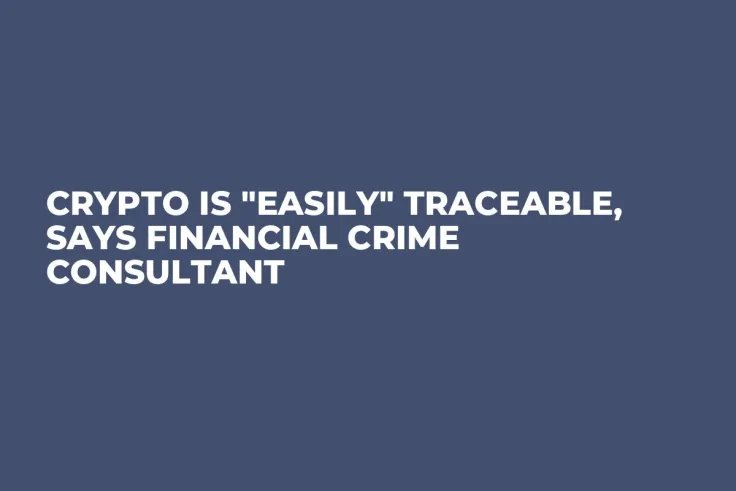
Michael Gromek, the co-chair of the Digital Asset Task Force committee of the Global Coalition to Fight Financial Crime, believes that cryptocurrencies are not a hideout for illegal actors as transactions are traceable.
Gromek made the statement while speaking in an interview with Kitco News at the Future Blockchain Summit in Dubai. He said:
Conducting transactions on the blockchain and feeling that you will run away and be unpunished is not true. Most suspects can be easily tracked… Conducting transactions on the blockchain with pseudo-anonymous currencies is not smart.
Citing reports that indicate that illicit activities on the blockchain are only roughly 0.15% of all transactions, Gromek revealed that the Digital Assets Task Force can sniff out criminal actors by working with Know Your Customer (KYC) data of exchanges and implementing anti-money laundering (AML) regulations.
The financial crime consultant added that not even so-called "privacy coins" like Monero (XMR), which uses complex codes to hide wallet addresses, are exempt from being traceable by law enforcement bodies.
Gromek's advice for investors
According to Gromek, while illicit actors in the crypto space can be brought to justice, investors still have to be vigilant to not fall victim to scammers and fraud. One way to do this is to assess risks before investing in any project and work with only trading venues that are compliant with regulations in their jurisdiction.
His revelation is coming after several privacy coins have run afoul of regulators recently. Back in September, U.Today reported that crypto exchange Huobi Global delisted several privacy coins including DASH, XMR, ZEC, ZEN, and a few others.
Similarly, the popular Ethereum-based privacy tool Tornado Cash was banned by the U.S. Treasury's Office of Foreign Assets Control (OFAC) for facilitating money-laundering transactions, especially for hackers linked to North Korea.
 Vladislav Sopov
Vladislav Sopov Dan Burgin
Dan Burgin